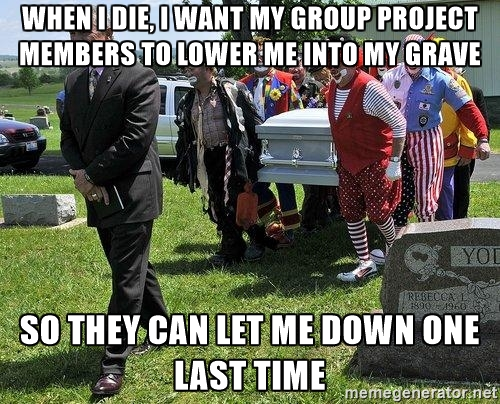Teamwork in college
In this Issue: group projects and teamwork
As parents and families, you already understand the importance of equipping your Deac with the necessary skills for success. One crucial skill that holds great value in both academic and professional settings is teamwork. Depending on the classes your student takes, they may encounter group projects and other collaborative work as part of their academic life. And as students join campus organizations, they may be working on subcommittees or taking on leadership roles where they need to collaborate with others to achieve the organization’s goals.
By encouraging your student to be attentive and intentional in developing effective teamwork skills, this can help them thrive in their academics and maybe even their future career. So today let’s talk about how you can support your student in cultivating effective teamwork skills.
Encourage involvement in group projects
Full disclosure: I don’t love group projects myself (I am a fantastic lone wolf). I did my fair share of grumbling about group projects in graduate school (see my favorite group project meme below).

All humor aside, as parents and family members, our opportunity is to NOT reinforce stereotypes about group projects, but instead help our students see the benefits of group work: our students will practice delegation, diplomacy, compromise, and trust in group projects. This is an opportunity to practice and refine their teamwork skills, which they will invariably need in Life After Wake.
So come the fall semester, if your Deac is grumpy about a group project, don’t join in the grumping, but offer perspective: encourage them to actively participate in group assignments, collaborate with their peers, and contribute their unique perspectives.
Some ways group work can be more enjoyable and efficient is if the group establishes clear roles at the start of a project, sets goals, defines roles, and fosters open communication within the team. Here are a few things your Deacs may want to consider:
Emphasize active listening
Listening is a fundamental aspect of effective teamwork. Encourage your Deac to be an active listener by paying attention to others’ ideas, perspectives, and concerns – and not just planning your rebuttal as they speak. Advise your studentsto ask questions, seek clarification, and show genuine interest in their teammates’ contributions. Active listening helps foster trust, respect, and a sense of belonging within the team – which makes group work more enjoyable.
Promote effective communication
Effective communication is vital for successful teamwork. Students should communicate clearly, concisely, and respectfully with their teammates. Advise your Deac to actively share their ideas, thoughts, and concerns – while being open to receiving feedback. Remind them of the importance of both verbal and non-verbal communication cues in conveying their messages effectively. This will also help build their diplomacy skills.
Foster collaboration and compromise
Teamwork often involves finding common ground and making compromises. Help your Deac understand the value of collaboration and encourage them to embrace multiple perspectives. Remind your student to navigate conflicts constructively, foster consensus, and work towards mutually-beneficial solutions. To be a successful team, each team member needs to respect their teammates’ viewpoints and find compromises that benefit the entire team – not just to get the solution they wanted.
Develop both leadership and followership skills
Effective teamwork involves both leadership and followership. There will be times when your Deac may take on a leadership role in a group activity, and then it is appropriate if they take a more active role in guiding the team towards its goals. But we can’t all be leaders in a group – so emphasize the importance of being a supportive team member when playing a followership role. Sometimes being in a follower role is recognizing the strengths and expertise of their peers and ceding to their experience if it is greater – or as Kenny Rogers once said, you gotta know when to hold ’em and know when to fold ’em.
Closing thoughts
If your Deac, like me, tends to be a lone wolf who is quite comfortable working solo, summer might be the time to plant the seeds of getting used to group projects and group work. With some strategies on how group projects can go more smoothly, they may be better prepared for the start of the school year in August.
And one program note: the University is closed tomorrow for the Juneteenth holiday, so the Daily Deac will resume on Friday.
